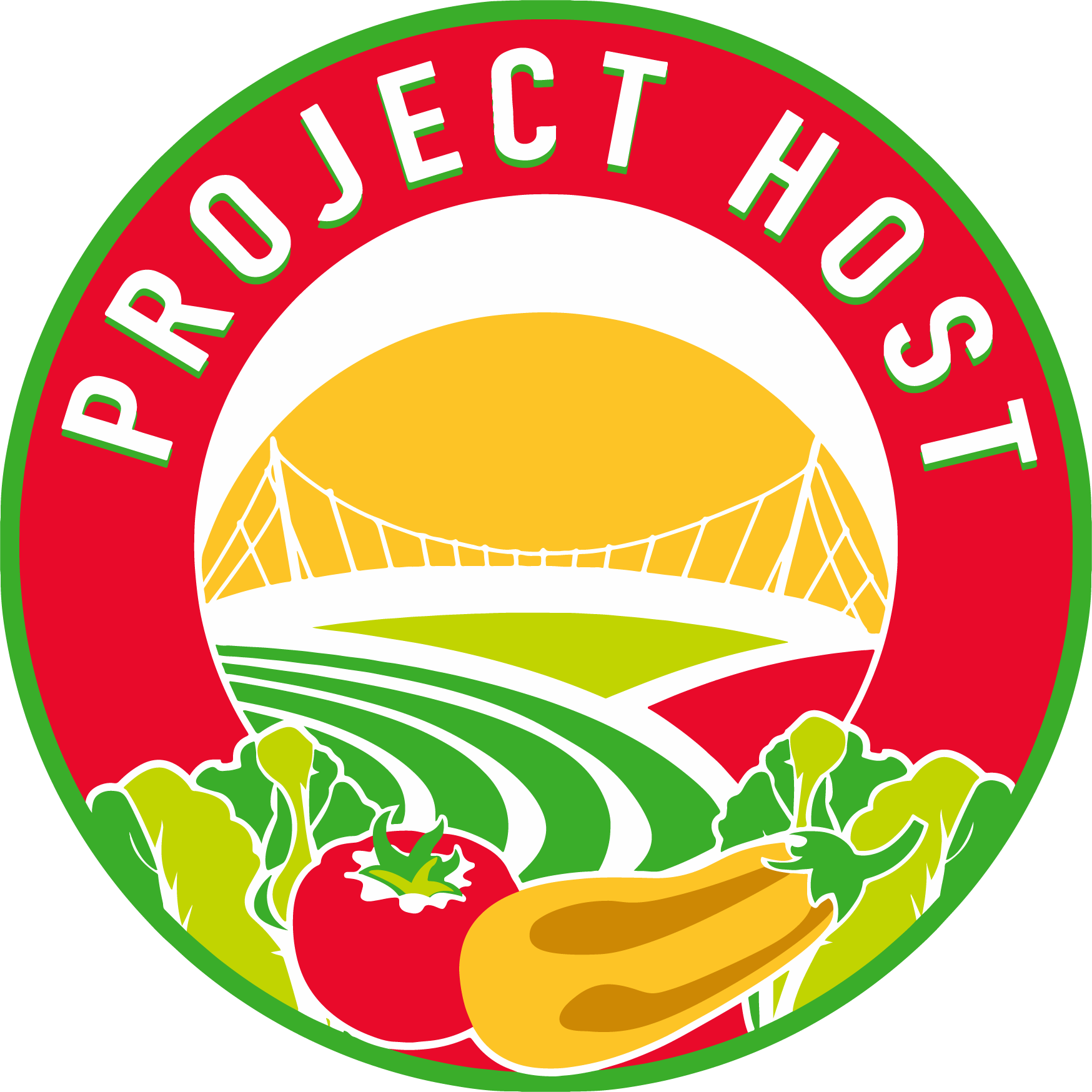As Fate Would Have It: Tobin Simpson's Unexpected Journey to Project Host
It’s the kind of fateful series of events you see in movies. A young man working a job that he loves, but that’s grueling, stressful, and not quite giving him the sense of purpose and fulfillment that he’s looking for in life. One night, work in the kitchen is hot, and tempers are running hotter. A pushy patron who’s had too much to drink and overstayed his welcome drives our protagonist to the brink, and a fight ensues. The screen flashes to cops, a court date, and a community service sentence at a local soup kitchen that will alter the course of our hero’s path in life.
This isn’t the script for a made-for-TV drama. It’s the story of how Project Host CEO Tobin Simpson came to be where he is today.
Nearly a decade ago, Tobin was working at a fine dining restaurant in downtown Greenville. He and his now-wife Kate were contemplating marriage once she completed her nursing degree. The couple knew they wanted time for family, including one of their own, but it was becoming clear to Tobin that the path he was on wasn’t conducive to the kind of life he envisioned.
“I was having trouble feeling fulfilled at work. The particular environment I found myself in was unhealthy. Many of the people around me in my workplace were into a partying lifestyle. I felt like an outsider and like I was the only one pouring my time and effort into the restaurant. I worked 12- to 14-hour days at least five days a week. I missed my great aunt's funeral and my dad's fiftieth birthday celebration because I was at work.”
Tobin knew life couldn’t go on like this. And then fate intervened in the form of that altercation at the restaurant. Tobin’s clean record meant that he was able to walk away with a sentence of community service. Scanning a long list of organizations, Tobin knew when he saw Project Host and the soup kitchen that it was the best choice for him to serve out his 60 hours. After just one day of service, something resonated with Tobin.
“I remember arriving for my first day of service in the Soup Kitchen and feeling very sheepish about my actions, but it only took about an hour before I felt that I was embraced by the volunteers. We then all gathered to begin lunch service, and I remember it being such a humbling experience. I went home, and when telling Kate about my day, I broke down in tears as I told her about the magic of the operation. It wasn't coming from a place of feeling sorry for guests; it came from the love and effort that went into preparing a meal, and in turn sharing that meal with others.”
That love and effort Tobin poured into the food he prepared in the Soup Kitchen did not go unnoticed. Tom Fisher, then a Project Host board member and volunteer, pulled Tobin aside one day and told him Sally Green, Project Host’s Executive Director at the time, would be asking Tobin a question soon. “Just say yes to whatever she asks you,” Tom advised. The next thing Tobin knew, he was a temporary instructor in the CC Pearce Culinary School, and within a few weeks’ time, he threw his hat in the ring and was hired for the full-time Culinary Instructor position. “I had fallen in love with teaching and Project Host, and I didn’t want to be anywhere else.”
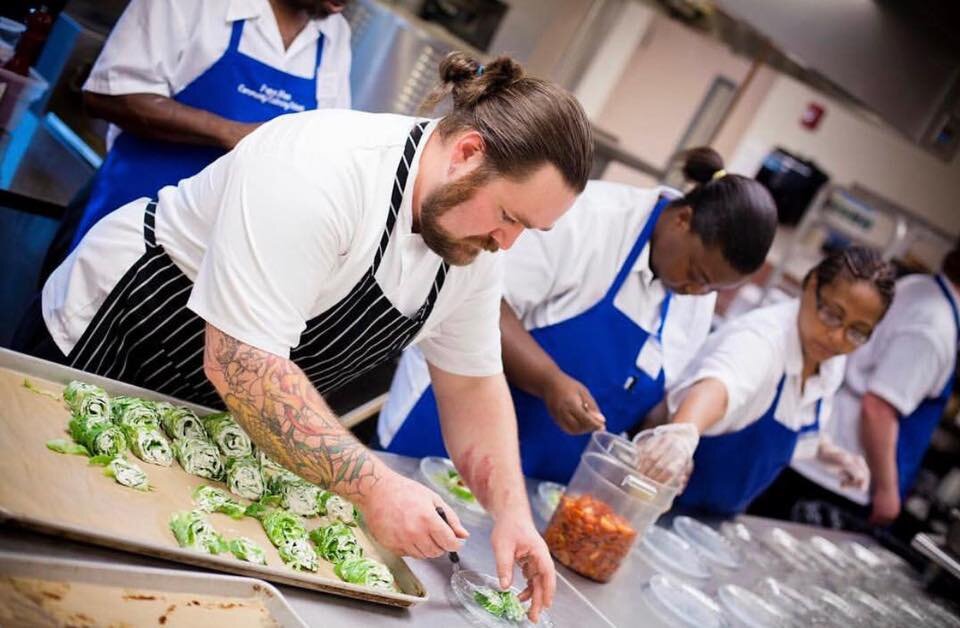
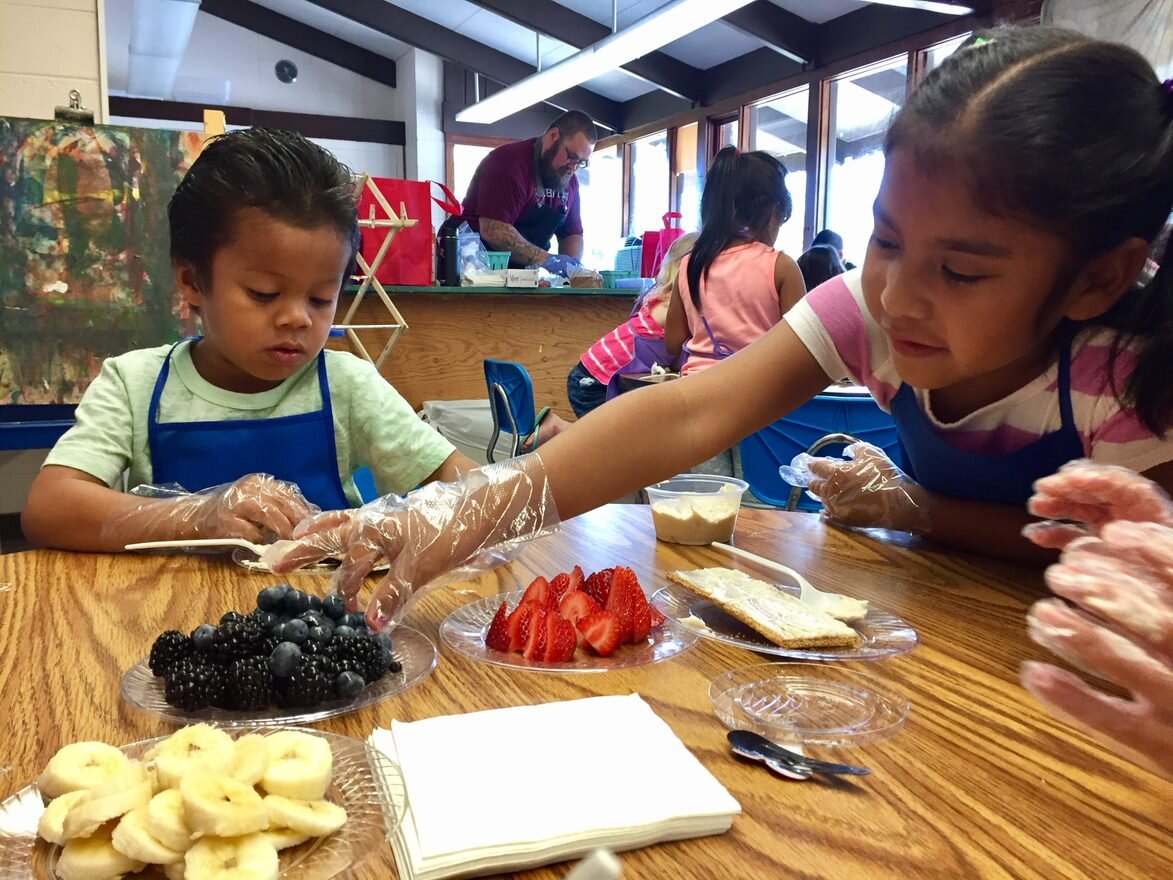
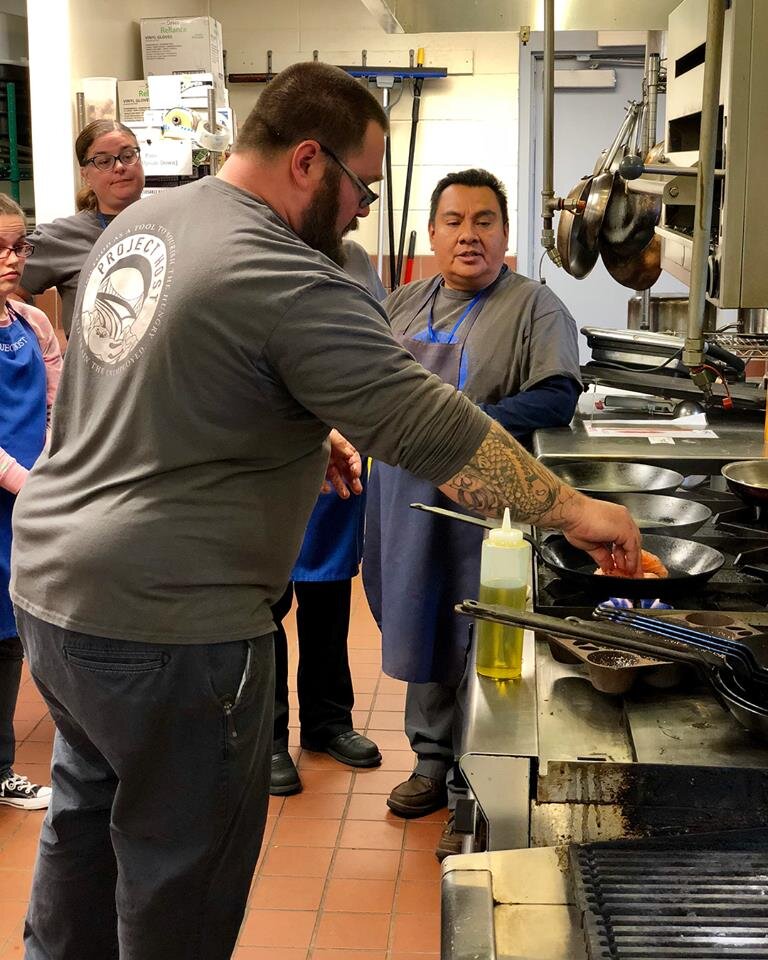
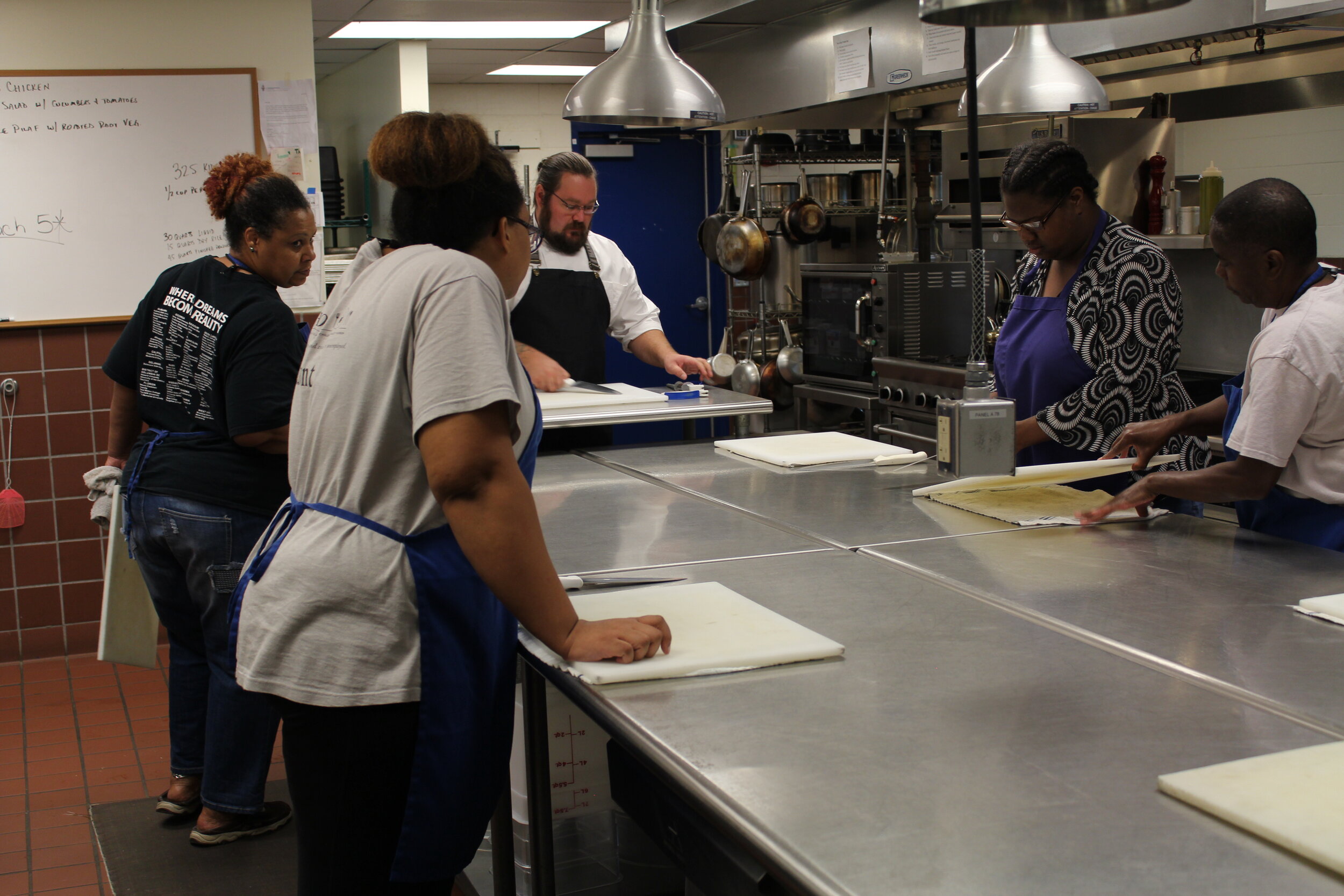
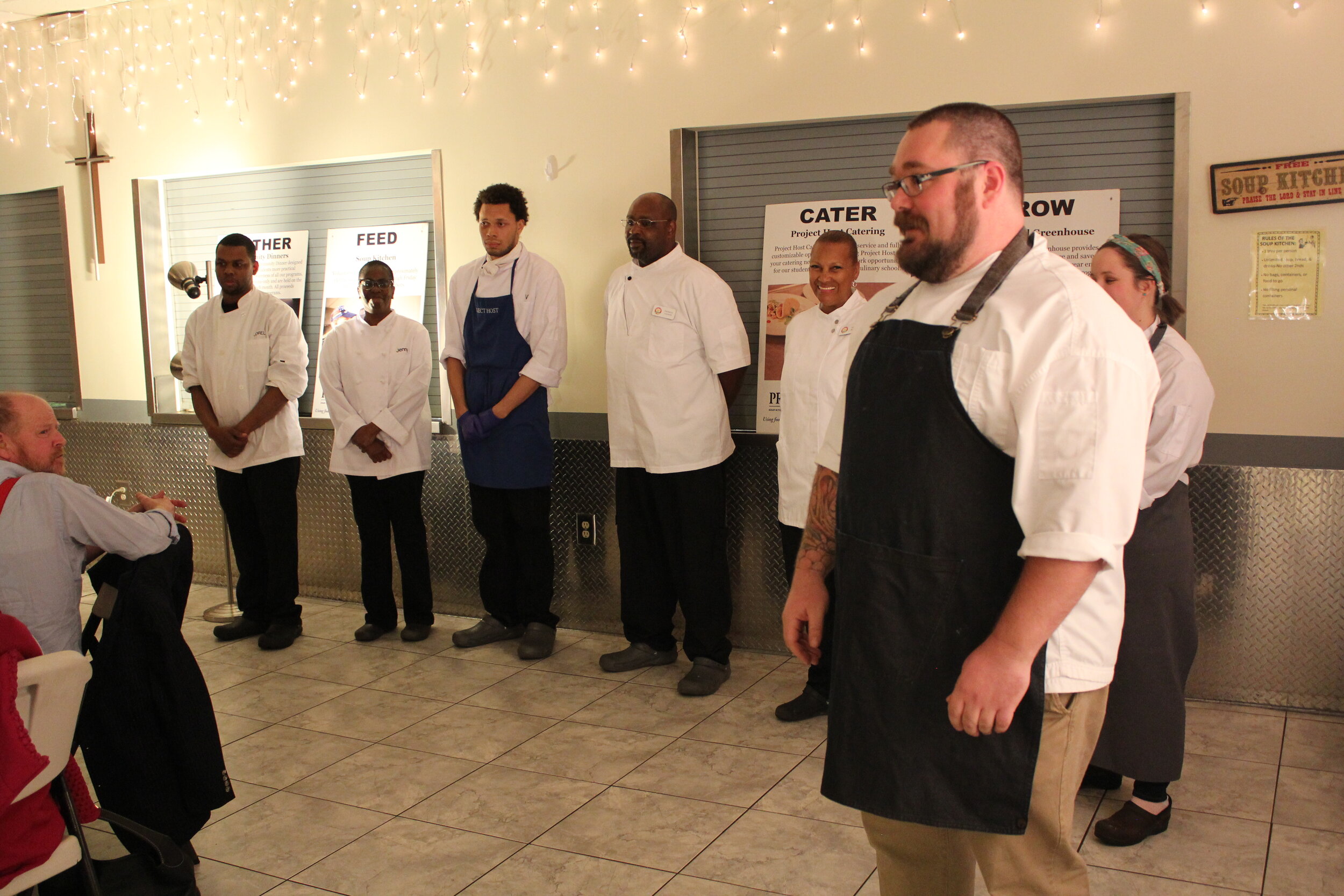
As much as Tobin enjoyed teaching in the culinary school, providing culinary instruction to others didn’t just come as second nature to him.
“I came to the position very naive. I was accomplished in fine dining and had the skills needed to execute dishes at a high level, and I thought I would easily transition into teaching students to follow in my path. It didn’t take long to figure out that I needed to ascertain the level at which each student came to the program, and then meet each student where s/he was and structure my way of teaching to become much more individualized.”
While Tobin had some things to learn in order to succeed in his new position, he also had a thing or two to bring to Project Host.
“When I started, Project Host had a small-scale Feeding Hungry Children [now Cooking for Kids] program. I went to Sally and asked why on earth we had such a large kitchen when we only fed around 40 to 50 kids a day. We quickly made the change to increase the number of kids fed (at one time 800 daily) and the number of sites we worked with. I also scrapped the menu completely and started with a blank slate in an effort to cook seasonally appropriate and technically difficult dishes, so that our students preparing the meals were learning a variety of techniques and skills.”
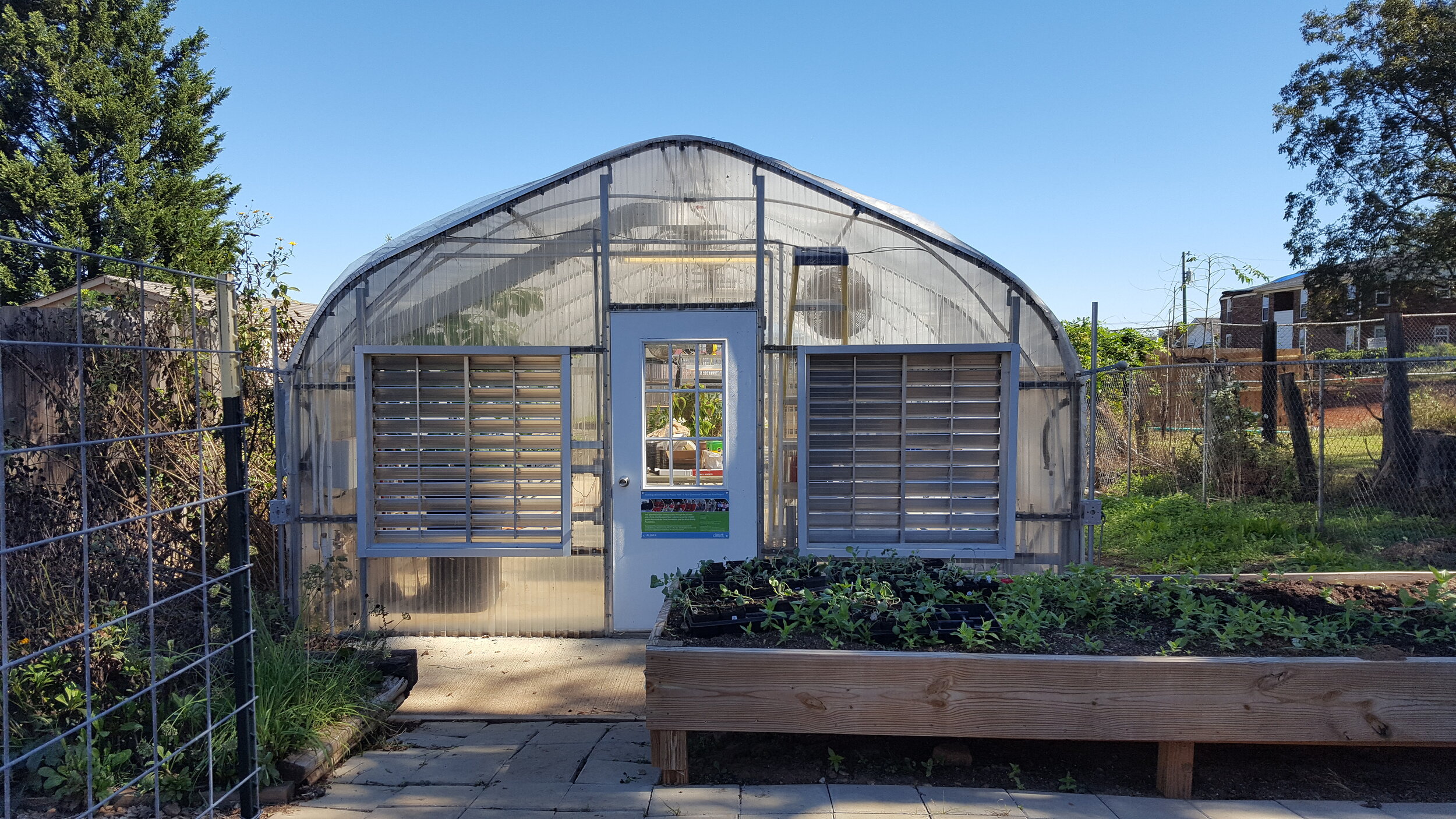
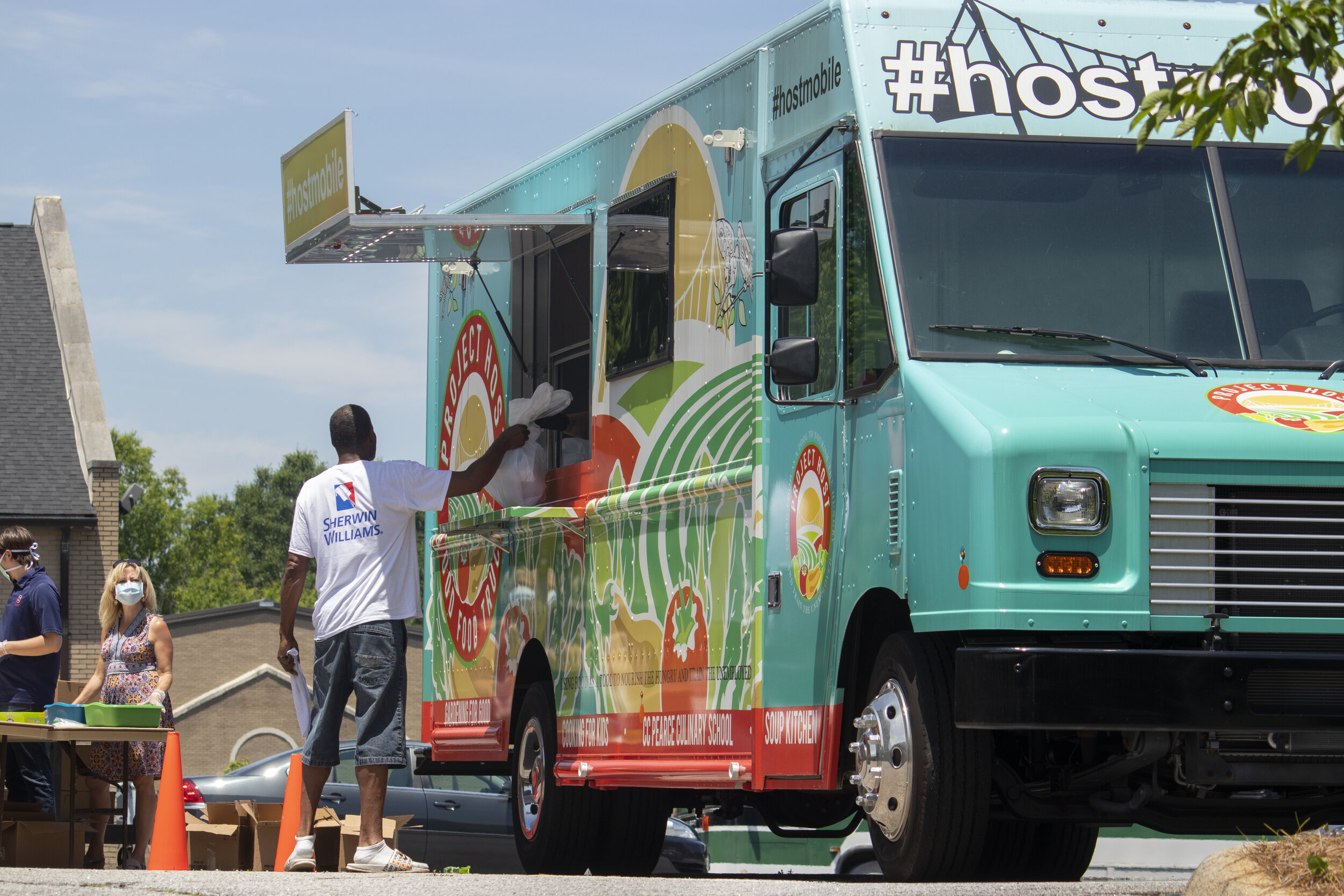
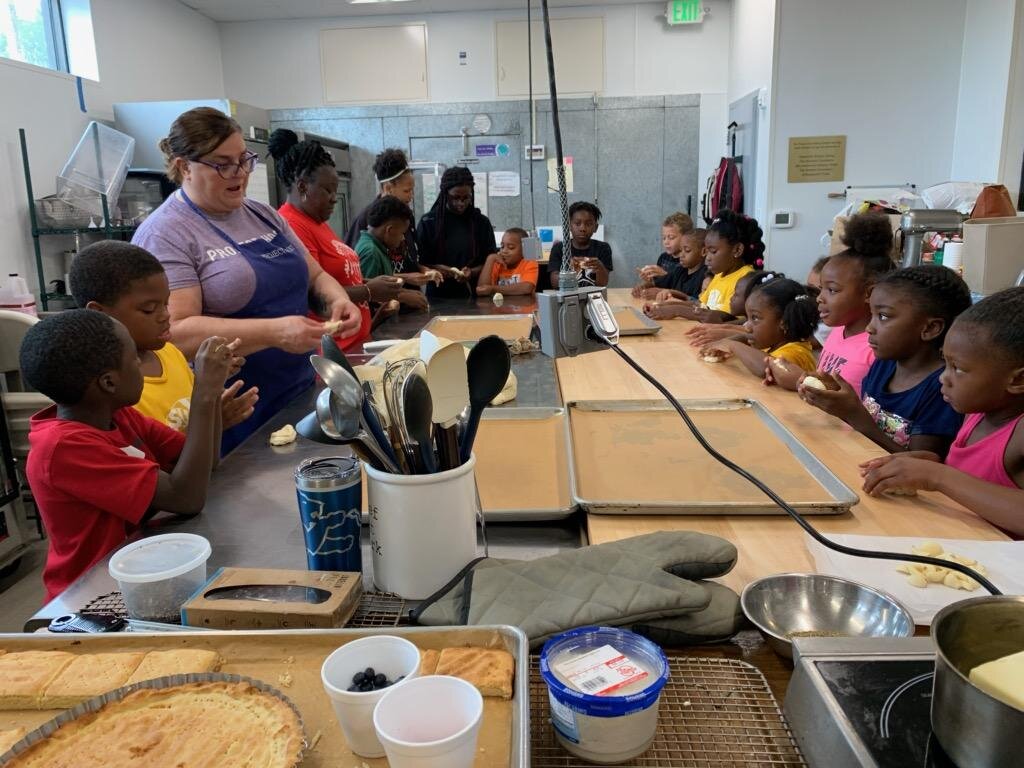
Then came Community Dinners to mimic a night in a busy restaurant kitchen for students, and the Gardening for Good program, made possible through a Fluor grant facilitated by board member Jill Mashburn, which ensured high-yield, consistent crops for the culinary school and an educational space for the community. More recently, Project Host added the Bakery and the HostMobile food truck.
Tobin has had a hand in helping shape the vision of each of these programs, so a leadership position at Project Host was a natural progression for him. After Sally retired in 2019 and a period of transitions, Tobin was selected as CEO in July 2020. While he is proud of how Project Host has developed up to this point, in Tobin’s eyes, there’s still much work to be done.
“Short term, I want to focus on strengthening our newest programs—the HostMobile and Bakery—by shoring up the social enterprise aspect of those and using internships in those programs to create long-term success for our graduates. I also want to strengthen partnerships with local area nonprofits to help create a more well-rounded network of support as our graduates enter the workforce.”
As for the Soup Kitchen, the best known and most established Project Host program, Tobin wants to take the upcoming fortieth anniversary to reflect on how to better serve guests.
“I want to create a more hospitable environment for our guests. I want to create an atmosphere of support and equity for them, and I want to push the volunteers to make personal connections and for everyone to be on a first-name basis. I’d also like to expand our evening meal and mobile outreach programs to better reach areas where there are people who would benefit from a free meal, but may be unable to come to our physical location.”
Expanding outreach beyond the dining hall also creates further volunteer opportunities, another priority for Tobin. “I would love to see opportunities for people that work a 9-to-5 job to come in and volunteer and get that life-changing experience of helping provide a critical service to our neighbors.”
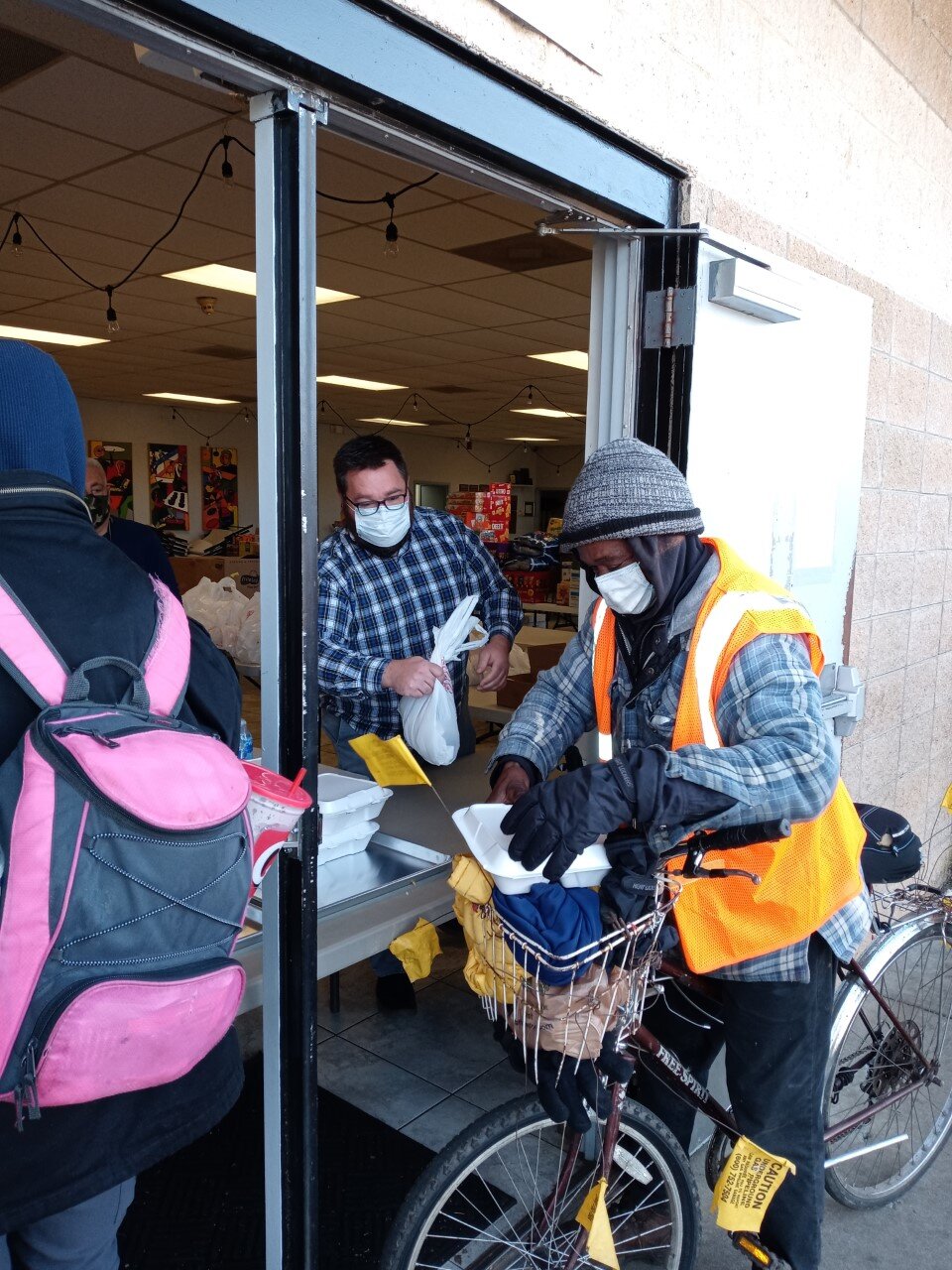
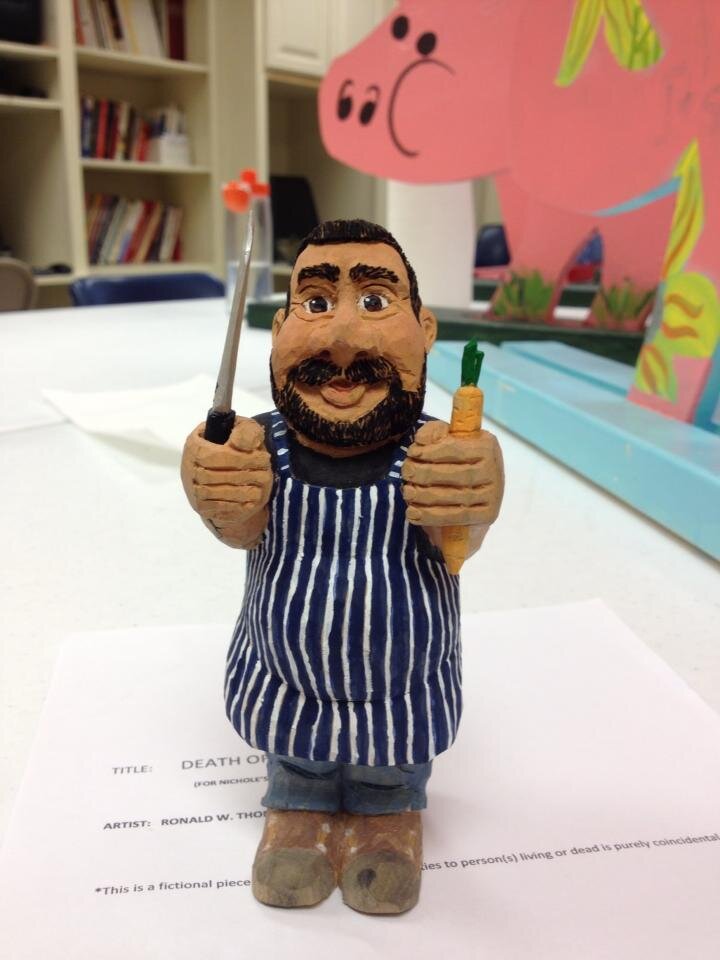
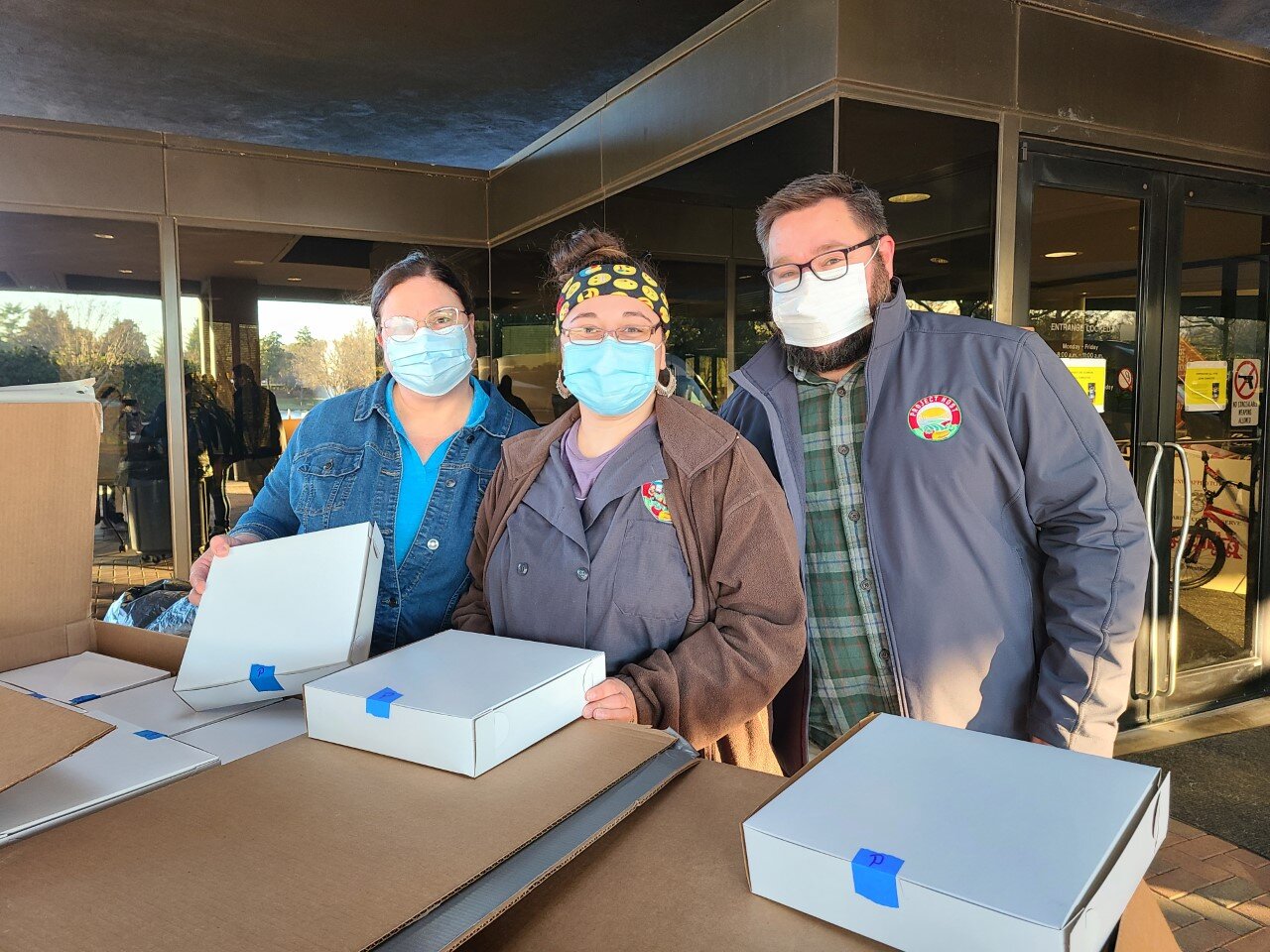


Human connection. A sense of community and in-it-togetherness. The feeling that one’s efforts and interactions are having a meaningful impact on someone else. That “magic” Tobin felt on day one of his service in the Soup Kitchen. That’s what he wants everyone—guests, students, volunteers, and staff alike—to feel when the day is done.
That feeling is what makes Tobin so thankful that fate intervened all those years ago. While being CEO of a complex organization is arguably no less stressful than an endless string of busy nights in the kitchen, being surrounded by people who share his vision for the Project Host and seeing the effect the organization has on lives makes the long days and constant effort worth it.
“The personal connections I make with volunteers, guests, students, and staff are what motivate me every day. Having the opportunity to walk alongside someone and offer support when they need it is the most rewarding part to this job. Seeing pride in a graduate's eyes and knowing they have done all they can to focus on themselves and take the first steps toward a better future is the greatest experience I could ask for from a job. That’s what brings the sense of personal fulfillment I’d been searching for.”
By Claudia Winkler
